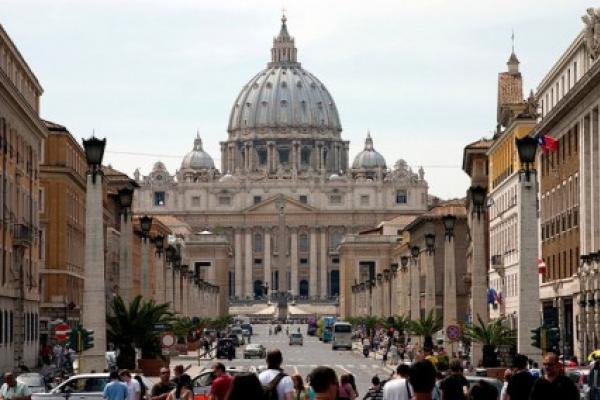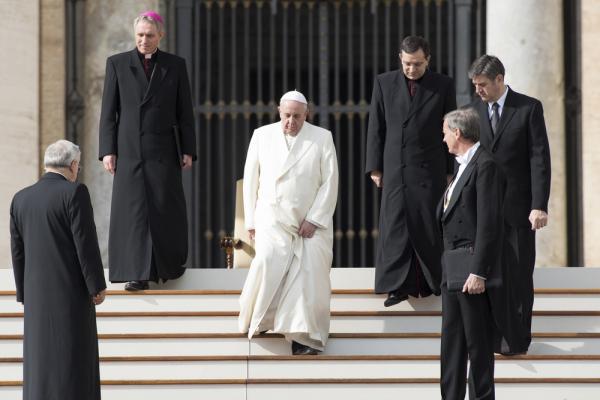"It's about God, stupid." I can still hear Dean Richard Hays addressing Duke Divinity School at its convocation two years ago, reminding a room full of ambitious, intelligent, and talented theologians to keep their priorities in line. "You will all be writing papers, reading books, studying for exams. Some of you will be worrying about getting published and applying for Ph. D programs. But just stop. Just remember: It's about God, stupid."
Meanwhile, I sat there in awe at this powerful message, but also amused at how he just called three hundred graduated students at Duke "stupid."
Yet Dean Hays was right on target. We needed to hear it.
I don’t know about young girls, but I know from experience that young boys obsess about sex.
They crave it, fantasize about it, do everything in their meager power to obtain it, worry about their adequacy, get confused by their longings, and for the duration of adolescence — and often beyond — see people in terms of “getting laid.”
I suppose this obsession is natural, and that it serves some fundamental purpose, such as perpetuating the species or giving us something to think about besides our gangly bodies, weird thoughts, and being young and insecure.
I don’t know any adult who would willingly repeat adolescence. Yet here we are — we Christians seeking hope, grace, mercy, and purpose, we believers in a God of justice — treating our faith as an endless adolescence centered around sex.
VATICAN CITY — While millions of pilgrims are expected to attend the Catholic Church’s first-ever double canonization at the end of April, the Vatican is preparing its most ambitious TV and social media campaign for the millions who don’t make it to Rome.
For the first time viewers will be able to watch the historic event live in 3-D movie theaters in 20 countries across North and South America and Europe through a deal between Vatican TV and Rupert Murdoch’s Sky TV network, Sony, and other partners. City officials are expecting more than 5 million people to attend the ceremony when Pope Francis declares his predecessors Pope John Paul II and Pope John XXIII saints in St Peter’s Square on April 27.
If some secular organizations had their way, much of the current class of lawmakers would flunk out of Congress.
The Secular Coalition for America, an umbrella organization of 13 nontheistic groups including American Atheists and The Freedom From Religion Foundation, issued a “report card” on members of the U.S.House of Representatives and Senate based on their votes on recent legislation involving church-state issues.
More than half of lawmakers received F’s, meaning, in the coalition’s eyes, they fail at upholding the separation of church and state.
Days after discussing the U.S. Catholic bishops’ fight over contraception with President Obama, Pope Francis met Monday with members of the Green family, the Oklahoma billionaires whose company, Hobby Lobby, took their challenge to Obama’s contraception mandate to the Supreme Court last week.
The pope met with Obama on Thursday for the first time, touching on some hot-button disputes between the White House and U.S. Catholic bishops.
Let’s be clear: April Fools’ Day is not a religious holiday.
It does, however, trace its origins to a pope.
The day began, most believe, in 1582, when Pope Gregory XIII decreed the adoption of the “Gregorian calendar” — named after himself — which moved New Year’s Day from the end of March to Jan. 1.
The change was published widely, explains Ginger Smoak, an expert in medieval history at the University of Utah, but those who didn’t get the message and continued to celebrate on April 1 “were ridiculed and, because they were seen as foolish, called April Fools.”
Today, the United States Conference of Catholic Bishops' will hold a border mass in Nogales, Ariz., at noon eastern time.
Cardinal Sean O'Malley, from the Archdiocese of Boston, and seven other bishops will gather at the border calling attention to the humanitarian issues that persist and calling on Congress to pass humane and commonsense immigration reform.
The event comes amid increased support for immigration reform in the Christian community. Recently, Catholics and evangelicals joined together to send an open letter to Congress and had key joint hill meetings. Urging reform that’s rooted in biblical principles, the national leaders met with the offices of Speaker John Boehner (R-Ohio), Congresswoman Cathy McMorris Rodgers (R-Wash.), Congressman Paul Ryan (R-Wis.) and Congressman Jason Chaffetz (R-Utah).
The event will be live streamed below.





